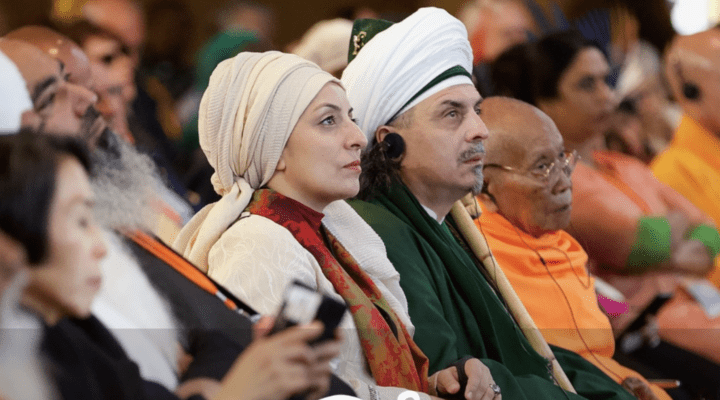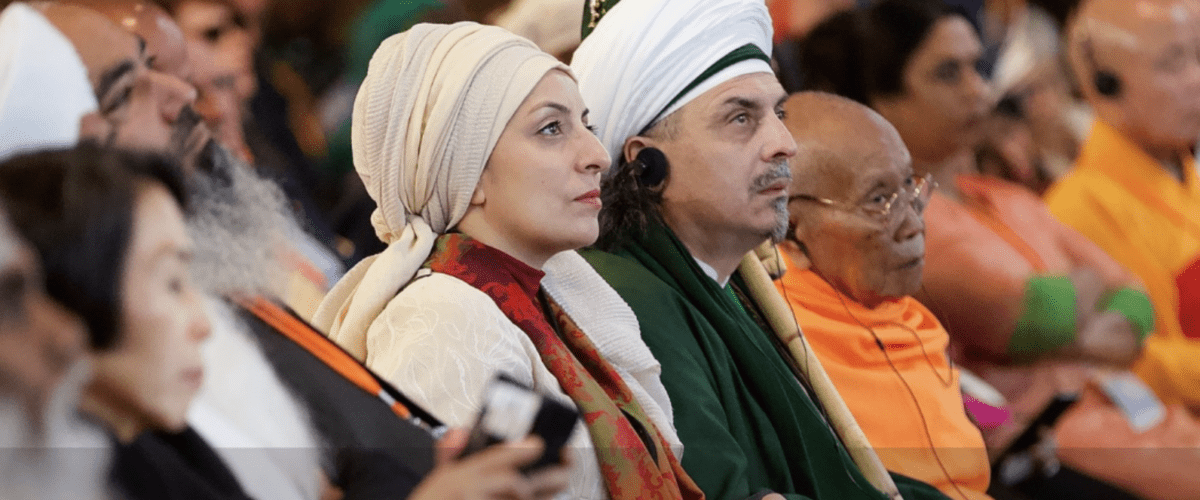The COVID-19 pandemic has provided “the clearest possible illustration of our interdependence,” Archbishop of Canterbury Justin Welby said this week.
For example, “COVID has exacerbated suffering in war zones. Climate change has marginalized the suffering even further, forcing people to compete desperately over dwindling resources.”
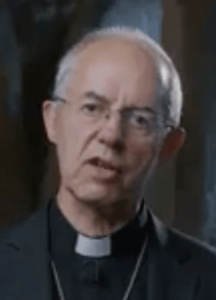
Justin Welby
Such challenges must be met with the kind of compassion many people already have demonstrated, Welby said. “All over the world, religious communities are responding with deep wisdom, compassion and generosity.”
Continued interfaith collaboration is necessary to lead the planet from growing food insecurity, war, gender and other forms of oppression that might otherwise be impeded by theological disagreements, Welby said during an Oct. 5 session of the “Conference on Faith and Diplomacy: Generations in Dialogue.”
“The theological is sometimes the hardest one for us to face. It requires us to acknowledge our differences, as well as what we have in common, and to work to address those traditions in each of our religious communities that have inhibited the common good or, worse still, have somehow colluded with violence,” Welby said in video remarks delivered during the four-day event being held in Landau, Germany, and streamed online.
The gathering, which concludes Oct. 7, convenes the World Council of Religions for Peace, which includes the Interfaith Youth and Women’s networks and is co-organized by Ring for Peace. Its focus is on bringing interfaith and intergenerational dialogue to bear on humanitarian and environmental concerns.
“It is vital that governments and NGOs continue to work with religious organizations to appreciate their deep and abiding commitment to communities often still there once businesses and other organizations have moved on,” Welby added. But faith groups must address their internal divisions and any reluctance to working with other traditions: “Questions of faith have never been more relevant. People are naturally questioning how we live and how we relate to each other.”
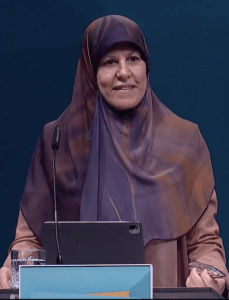
Layla Alkhafaji
A fear or mistrust of diversity is one of the obstacles to faith-based cooperation, speaker Layla Alkhafaji said.
“When some look at diversity, they may see it as a weakness” and as an impediment to social harmony, said Alkhafaji, an elected member of the Iraqi political bureau who is currently helping write that nation’s new constitution.
“We must talk about managing diversity. By managing diversity, we can turn diversity from being a curse to being a good thing, from being a challenge to an opportunity, from being a weakness to be a resource.”
That approach was on display earlier this year when Pope Francis made his historic trip to Iraq that included a face-to-face meeting with Shia Muslim cleric Grand Ayatollah Ali al-Sistani.
Alkhafaji said the two religious leaders praised each other for defending the weak and recognized the ongoing roles their faiths have in serving the cause of peace and security in Iraq.
Francis and al-Sistani served as examples of the cooperation possible between religious groups facing severe challenges and of “how religious leaders can be very influential” in modeling collaboration for entire nations and the world, she said.
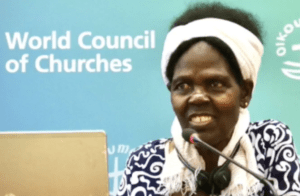
Agnes Abuom
But the role of women must improve if religious groups are to become true examples of compassion, added Agnes Abuom, moderator of the central committee of the World Council of Churches. “Faith institutions play pivotal roles in crisis situations, and woman are a big part of it, yet their leadership role is fundamentally overlooked and untapped.”
Even so, women have made a difference in unmasking and opposing culturally inflicted forms of violence such as female genital mutilation, rape as a weapon of war and domestic violence in the midst of ongoing environmental and health crises, she said. But women also experience being silenced in mainstream and social media and are excluded from leading roles in peace negotiations.
The need is for “leadership that amplifies women’s agency and women of faith as protagonists of human dignity, peace and security, and healers of creation and pushes for new frontiers of advocacy and global leadership,” Abuom said. “Let’s pray that women of faith continue to be a force for peace.”
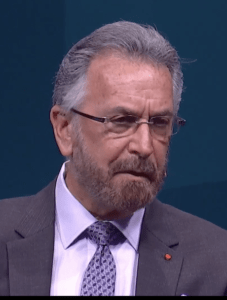
Rabbi David Rosen
In a previous session Oct. 5, Rabbi David Rosen said young people have a key role in bringing about gender equality and in bringing an end to hate speech, especially in social media and in other online formats.
“What I would ask them is, when you come across a statement, whether its deprecating against a person because of their gender, or because of their lifestyle or because of their religion, don’t let it pass… don’t stand by,” said Rosen, international director of interreligious affairs for the American Jewish Committee. “When you see something on the screen, react. Say this is wrong. Affirm the dignity of every human person. That way you are … contributing to combating evil, promoting good and making the world a more peaceful place.”
Another form of evil that must be fought is fundamentalist religious teachings that distort Scripture in order to oppress women, destroy the environment and promote armed conflict, said Munib Younan, bishop emeritus of the evangelical Lutheran church in Jordan and the Holy Land.
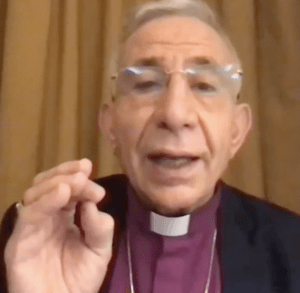
Munib Younan
“If religious leaders are quiet, then the extremists will show their own side of religion, and that’s the reason we need robust moderate religious leaders who will teach the real teaching of the holy Scriptures,” he said.
Human rights challenges such as racism, white supremacy and misogyny emanate from ignoring the basic “love thy neighbor” concept taught by Christ, he said. “Part of the peace-building is teaching the people how to read the Bible in the right way.”
Younan urged people of faith not to fear interfaith dialogue but to see it as a path for deepening their spirituality: “When I meet with Jews with Muslims and other religions and hear their points of view or their theological understanding of things, it deepens my spiritually, it doesn’t weaken it.”
Related articles:
Finding charity amidst the chaos one year into the coronavirus pandemic | Opinion by Curtis Ramsey-Lucas
‘What we must do, as young people, is to ensure we don’t carry forward the endemic fallacies’

